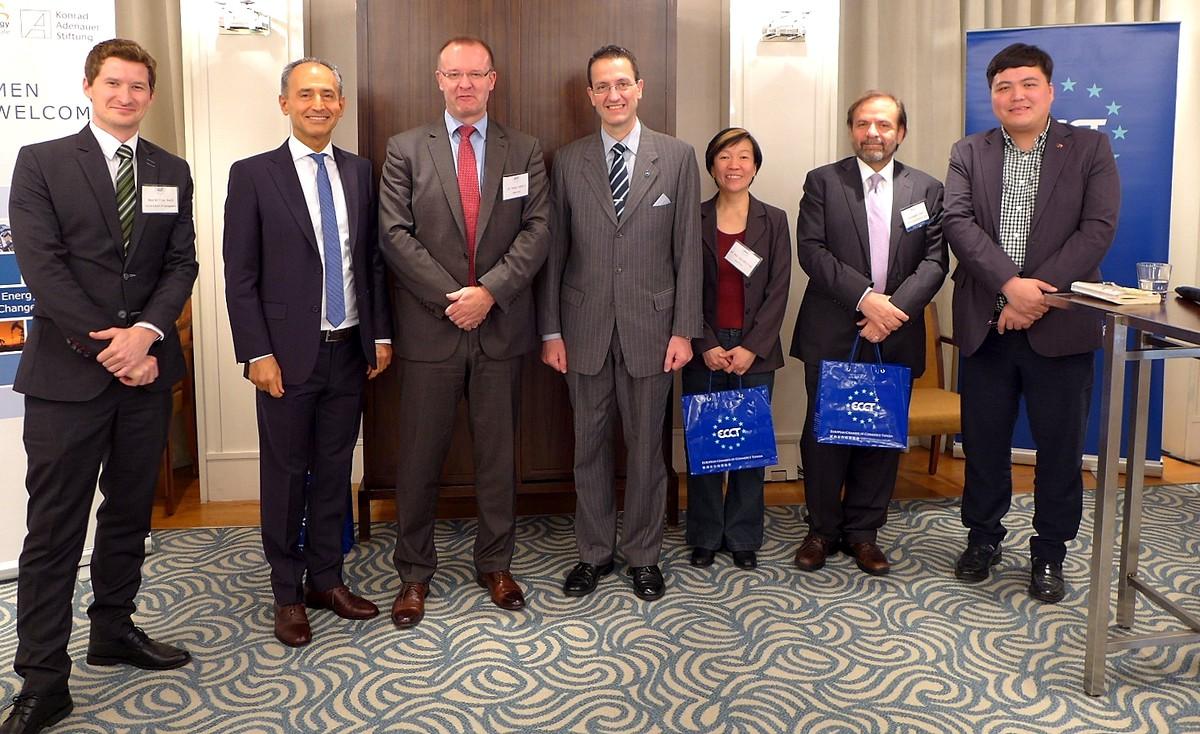Seeking for Asia-Euro Sustainable Development - Regional Programme Energy Security and Climate Change in Asia and the Pacific
Event Reports
Moderated by Dr. Peter Hefele, Director KAS RECAP Hongkong, Guiseppe Izzo (STMicroelectronics Taiwan) and Erdal Elver (Siemens Taiwan), members of Steering Committee of the Low Carbon Initiative of ECCT, and Professor May Tan-Mullins (School of International Studies University of Nottingham Ningbo China) identified several options of cooperation to promote sustainable and green developments in business and society. Given the ambitious goals of Taiwan´s economic reform, the concept of sustainability can integrate different policy initiatives and unleash wide business opportunities: smart urbanization, transportation, and renewable energy. Stable political and legal frameworks are most urgently needed to free up space for public and private investment.
The panelists agreed that Europe and Asia are facing similar challenges in promoting sustainable management and have, in some areas, already discovered the limitations of their possibilities. The term “smart urbanization” for instance promotes future hopes for smart infrastructure and energy-efficient skyscrapers. But is it only technological advancements and innovations that make cities worth living in? Or do cities rather act as unique social networks, connecting people in limited space and allowing them to embrace a more dynamic way of life? Considering the rapid urbanization and the emergence of vast metropolitan regions, particularly in Asia, the two partners need to find answers for these pressing questions.
High costs are another obstacle on the way to more sustainability in the areas of energy, infrastructure and transport. In Asia, there are few incentives to carry out the necessary investments due to continuously low energy prices. While the German energy transition (Energiewende) is praised, Asian decision-makers are critical of its initially higher costs and are hence reluctant to adapt the German model to their own countries. However, Germany could support its Asian partners in this endeavor by sharing its “best and worst practices”. Both Europe and Asia could also share and learn from each other’s expertise in the area of urban development. The discussion thus highlighted the excellent prospects for a deeper cooperation between Europe and Asia and how it could lead to more sustainability and prosperity in the near future.



